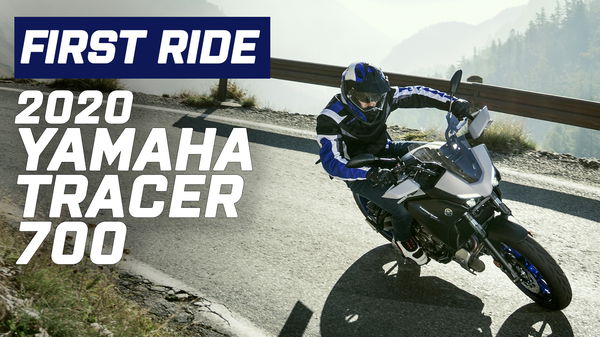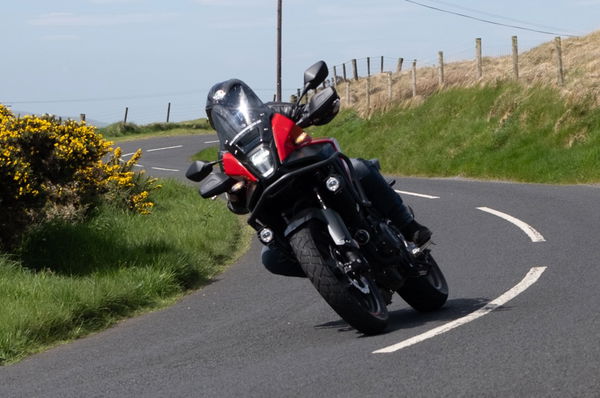Yamaha Tracer 700 (2020) review
Visordown went along to try out the 2020 Yamaha Tracer 700 on the island of Tenerife, here’s what we found out
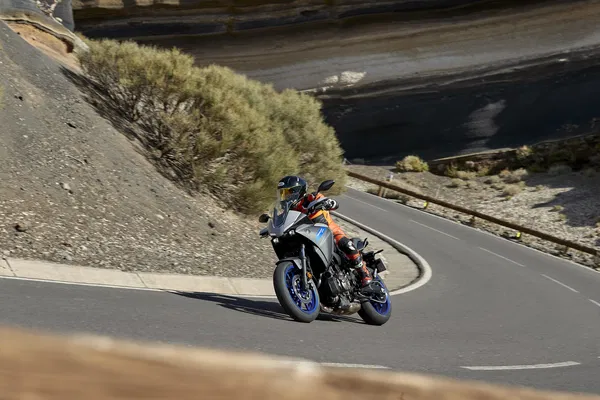
THE Yamaha Tracer 700 has been making waves in the middle-weight sports-touring scene since it morphed out of the naked MT-07 and launched itself onto the global stage.
Fast forward five years and bike has just gone through its biggest change to date, with revised styling, updated suspension, and increased rider and passenger comfort been just a few of the changes for this year. But do the changes make it the bike of choice in the mid-weight sports-touring segment?
Yamaha Tracer 700 (2020) video review
Price and colours
At £7,945, the new bike comes in at just £950 more than the outgoing model. For that extra dosh, you get the new, sleeker styling, a Euro5 compliant CP2 engine, a revised dash, and updated adjustable KYB suspension.
Keeping the bike’s price keen is key to the success of any machine in this sector, with that in mind a PCP deal on the Tracer 700 can be picked up for as little as £89 p/m – not bad money for a machine with this much versatility!
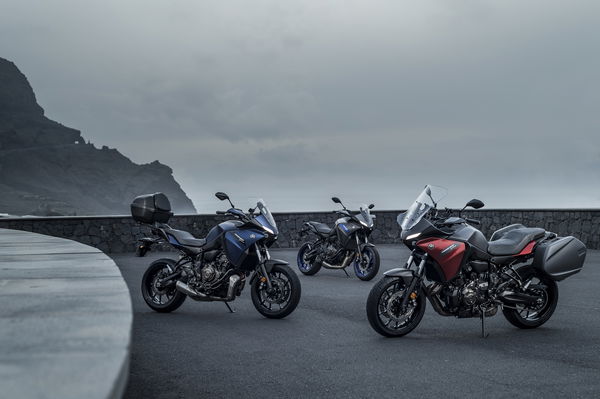
The new 2020 Yamaha Tracer 700 is available in Icon Grey (as ridden), Sonic Grey and Phantom Blue colour schemes. As with the previous Tracer, riders can opt for a set of accessory packs covering sports, touring and urban commuting. Each comes with a smattering of add-ons, luggage or protection parts already fitted.
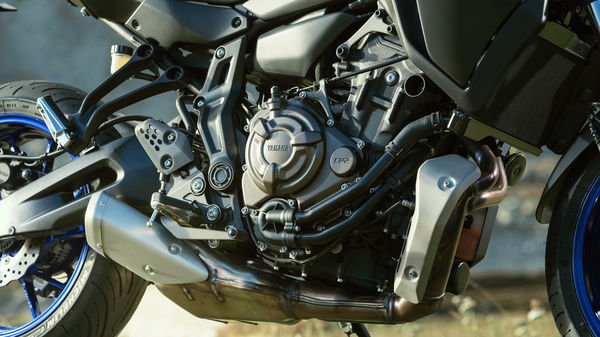
Engine
Happily, the Yamaha route to Euro5 compliancy doesn’t involve just lumping another 100cc onto the engine and whacking on a giant catalyser. Doing so would totally change the fizzy character of the CP2 parallel twin. Instead, the Yamaha engineers have future-proofed the CP2 since its inception in the MT-07, predicting where Euro emissions regulations would go from there and ensuring the engine could easily be tweaked to meet the incoming regulations. Neat isn’t it?!
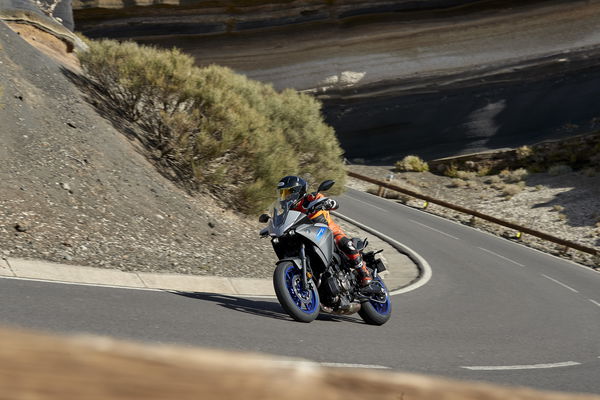
Internally engine is very similar to the previous version, with some minor fuelling tweaks and a new pre-cat located just below the manifold being the only clues as to what lies within.
Performance-wise, the new 2020 bike is almost exactly the same as the old, putting out 72bhp and 50ft-lb of torque. Power comes in 500rpm lower than before and the new bike feels just as lively and ready to play as I remember. The CP2 engine is a clever bit of kit and I always remember thinking that parallel twins shouldn’t be this much fun!
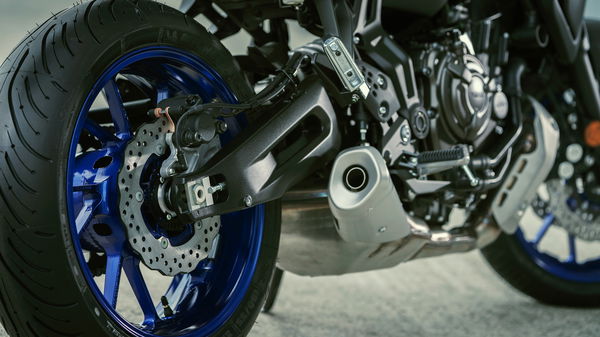
Giving the engine a hand out of slower corners is a rear sprocket that is two teeth larger for this year making the bike catapult out of corners with more urgency than the old bike.
Fuelling and throttle connection for the new bike is okay, although the amount of free play in the throttle twistgrip of the bike I rode on the launch caused a couple of ham-fisted launches during the test.
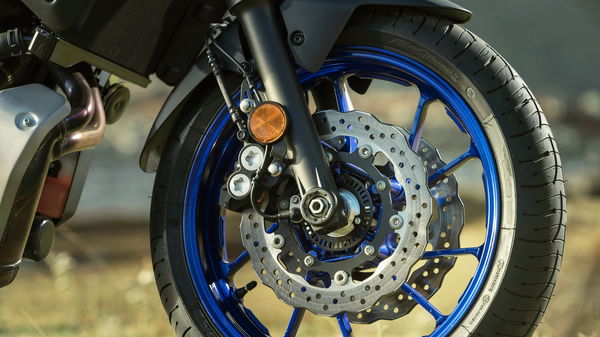
Suspension brakes and handling
One of the biggest and easily noticed changes for this year is the suspension of the new bike. Front and rear have spring pre-load and rebound damping adjustability provided by KYB. The decent spec kit has a transformational effect on the new bike's handling.
Where the old bike could quickly find its limit and become slightly inaccurate and underdamped and sprung, the new bike is super-composed, with a plush yet sporty feeling to it that makes cornering a much more enjoyable and accurate activity.

Braking on the new bike is provided by some rather aged but actually quite good Blue Spot calipers, the type that graced the Yamaha R6 for many years. Thanks to their race-bred ability they provide a surprising amount of bite for a bike of this nature, add a set of sintered pads and you’ll have a cracking set of stoppers.
If sporty prowess is the Ying then touring stability is the Yang, thankfully the sporty upgrade to the suspension doesn’t negatively impact that aspect of the Tracer 700’s CV. It’s supremely composed and comfortable at motorway speeds, buzzing along at 75mph and 6,000rpm. The rubber damped pegs and bars remain vibe free, with the revised seat (now around 5mm lower) providing all-day comfort for this 5’7” rider. For those taller than me, the revised, and now slightly lower seat, may make the lower body ergonomics feel a little bit cramped over longer distances.
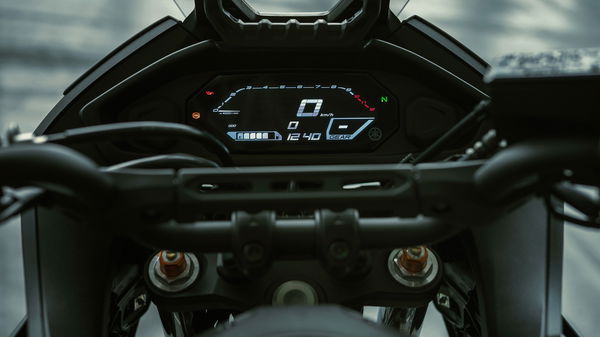
Equipment
Another new change for this year is a trick looking and easy to read reverse LCD dash, like the one fitted to the MT-09 SP. It’s an easy to read bit of kit, although it did make me think whether at this level a TFT would be more appropriate, given the bikes touring connotations. The ability to hook a phone up to a TFT for turn-by-turn navigation would be a big boost to a bike in this sector.
With no riding modes, engine power settings or other electronics to play with, the Tracer 700 is as uncomplicated as it gets. Flicking through the trip information via the left-hand switch cube is easy enough and there is enough bike and trip data to keep you busy.
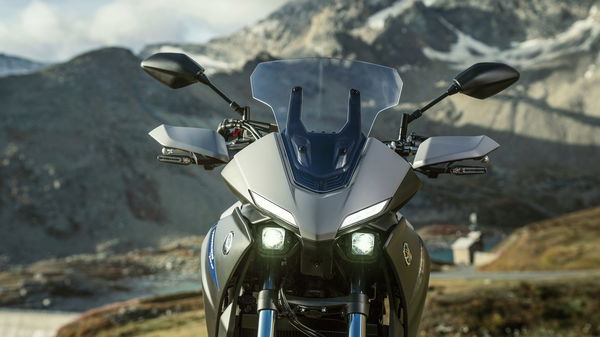
As with most bikes, it’s the equipment that is missing that makes itself felt the most. On that front, it’d be really nice to have a USB socket as standard fitment, either under the seat or on the dash. It’s a small thing, literally, but just means you don’t have to faff about with aftermarket ones or worry about ordering it from the dealer when you buy the bike.
The ABS system on the bike is two-channel only, with no fancy IMU control. I only found the system to intervene on the rear wheel but when it did it was fairly smooth without unsettling the bike too much.
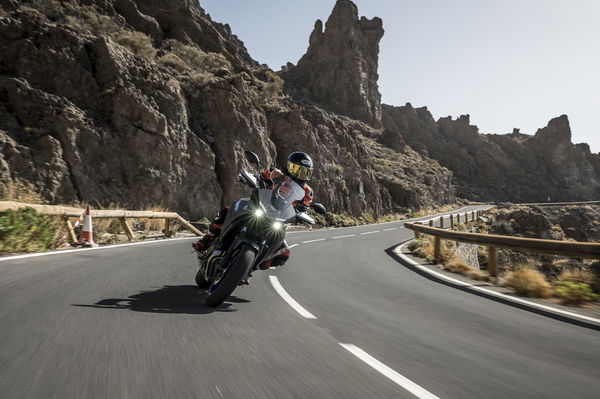
Another new feature for this year is the LED headlights replacing the previous bike’s slightly awkward looking items. While the new lights are bound to be brighter than before, the knock-on effect of the more compact setup is that the entire fairing of the new bike is noticeably smaller than before.
With that comes a slightly blustery ride at motorway speeds, with the smaller frontal area giving the rider few places to hide. Talking of places to hide, the stock screen is too small for even this rider. On its tallest setting, 50% of my lid was sat outside of the protective bubble of the screen, a problem that would be no doubt solved by opting for the taller and more contoured touring screen.
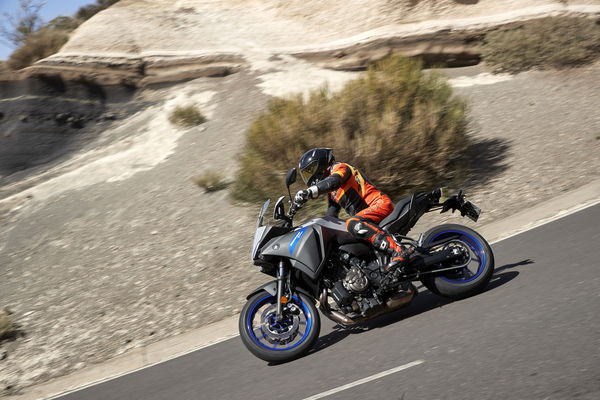
We like:
- Suspension upgrade is extremely positive
- New styling looks excellent
- Rider comfort is still top-notch
We don’t like:
- Stock screen is too small
- No USB port as standard
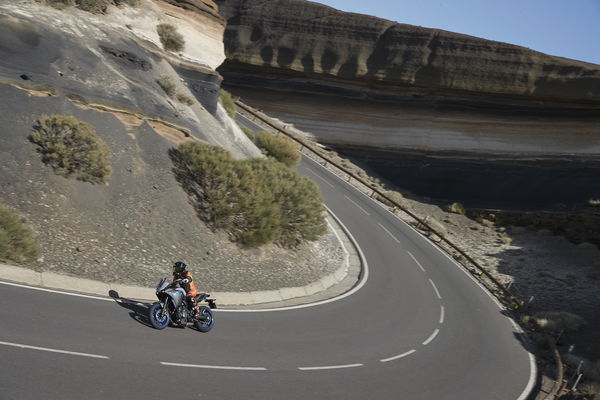
Yamaha Tracer 700 verdict
With it’s updated styling, new suspension LED lights, the new Yamaha Tracer 700 is sharper-looking, more agile and just as versatile as it was before. Add to that the new Michelin Pilot Road 4 rubber, acres of accessories and you have one excellently equipped weekday commuter and weekend explorer.
Does it have a few omissions though? Well yes maybe! I’d really like a USB port as standard, it won’t affect the price that much and comes as standard on some of the competition. A TFT dash would also set this bike well above the rest of the pack, although it’d push the price up a tad and maybe not make the machine seem such great value.
Those couple of gripes aside, the Tracer 700 should still be on your list of bikes to test ride if you want a side order of fun with your long-legged sporty touring machine.
Yamaha Tracer 700 specs
Engine type | 2-cylinder;4-stroke;liquid-cooled;DOHC;4-valves |
Displacement | 689cc |
Bore x stroke | 80.0 mm x 68.6 mm |
Compression ratio | 11.5 : 1 |
Maximum power | 72.4 bhp / 54.00 kW @ 8,750 rpm |
Limited power version | 46.9 bhp / 35.0 kW @ 7,500 rpm |
Maximum torque | 68.0Nm / 50.2 lb ft @ 6,500 rpm |
Lubrication system | Wet sump |
Clutch type | Wet;Multiple Disc |
Ignition system | TCI |
Starter system | Electric |
Transmission system | Constant Mesh;6-speed |
Final transmission | Chain |
Fuel consumption | 65.7mph / 4.3l/100km |
CO2 emission | 100g/km |
Frame | Diamond |
Front travel | 130 mm |
Caster angle | 24.8º |
Trail | 90mm |
Front suspension system | Telescopic forks |
Rear suspension system | Swingarm;(link suspension) |
Rear travel | 142 mm |
Front brake | Hydraulic dual disc, Ø282 mm |
Rear brake | Hydraulic single disc, Ø245 mm |
Front tyre | 120/70 R17 M/C 58W (tubeless) |
Rear tyre | 180/55 R17 M/C 73W (tubeless) |
Overall length | 2,140 mm |
Overall width | 806 mm |
Overall height | 1,290 mm |
Seat height | 840mm |
Wheel base | 1,460 mm |
Minimum ground clearance | 140 mm |
Wet weight (including full oil and fuel tank) | 196 kg |
Fuel tank capacity | 17.0L |
Oil tank capacity | 3.0L |
